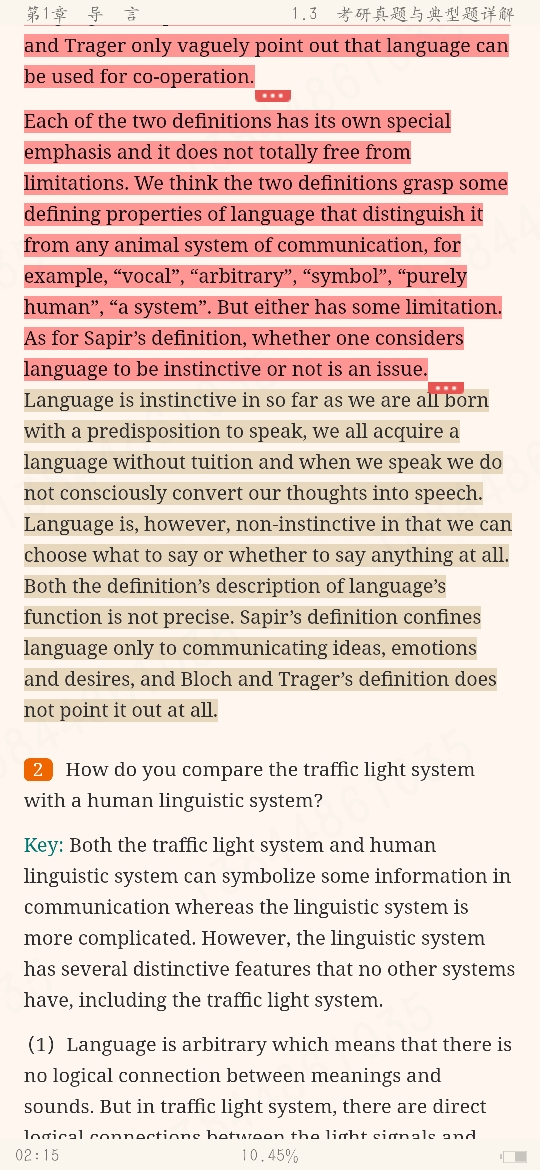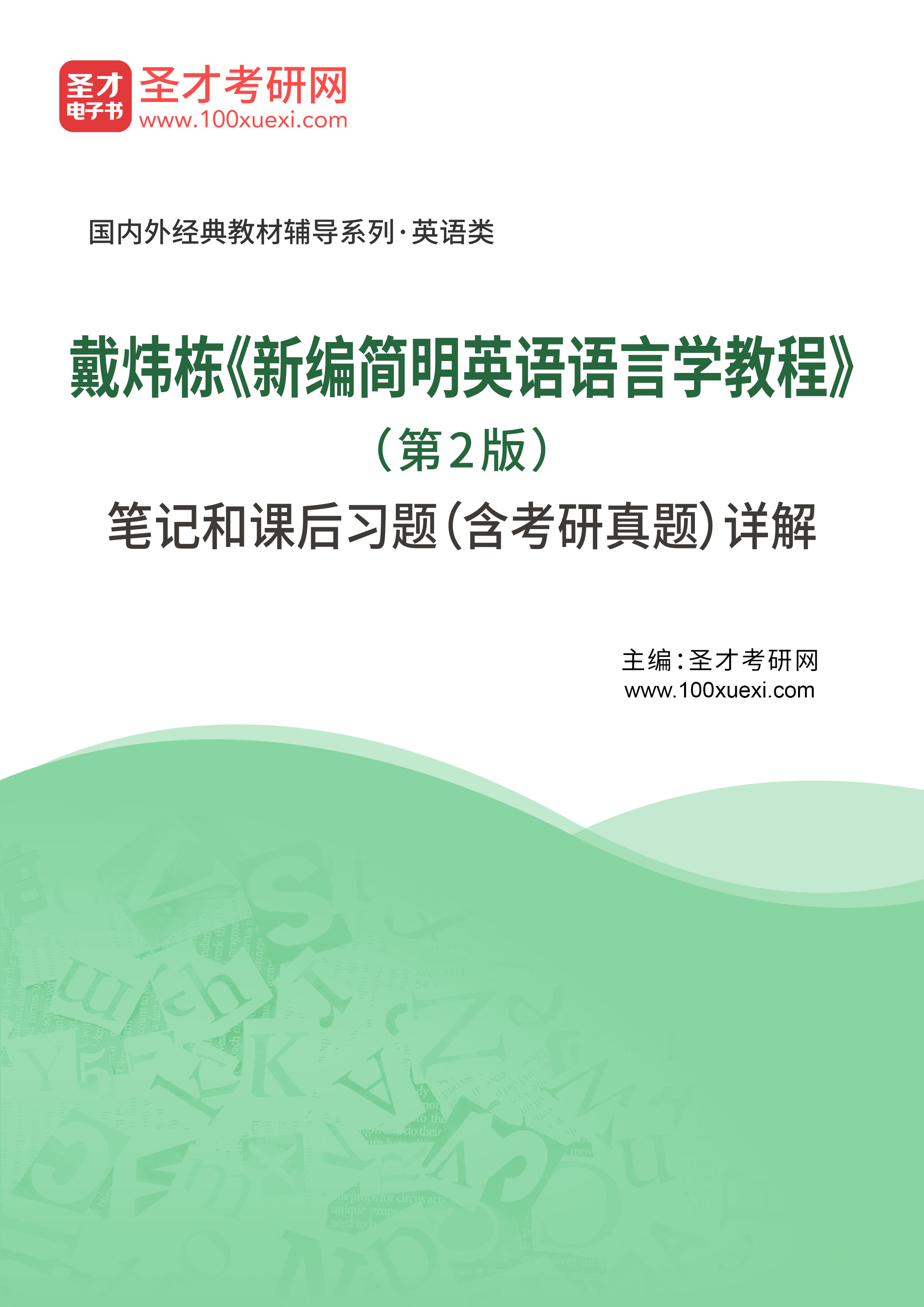时间: 2022-11-23 02:15:53 来自: ELE-AL00
在“戴炜栋《新编简明英语语言学教程》(第2版)笔记和课后习题(含考研真题)详解”的内容第23页备注了学习笔记
语言是一种本能,只要我们都天生就有说话的倾向,我们都能在没有学费的情况下获得一种语言,当我们说话时,我们就不会有意识地把我们的思想转化为语言。然而,语言不是本能的,因为我们可以选择说什么或是否说什么。这两种定义对语言功能的描述都并不精确。萨皮尔的定义只限制了语言来交流思想、情感和欲望,而布洛赫和特拉格的定义则根本没有指出这一点。Language is instinctive in so far as we are all born with a predisposition to speak, we all acquire a language without tuition and when we speak we do not consciously convert our thoughts into speech. Language is, however, non-instinctive in that we can choose what to say or whether to say anything at all. Both the definition’s description of language’s function is not precise. Sapir’s definition confines language only to communicating ideas, emotions and desires, and Bloch and Trager’s definition does not point it out at all.
点击查看资料全文:前往在线阅读下载全文

用户浪漫的音符正在学习的资料简介:
戴炜栋《新编简明英语语言学教程》(第2版)笔记和课后习题(含考研真题)详解

手机扫码阅读全文
第1章 导 言
1.1 复习笔记
1.2 课后习题详解
1.3 考研真题与典型题详解
第2章 音位学
2.1 复习笔记
2.2 课后习题详解
2.3 考研真题与典型题详解
第3章 形态学
3.1 复习笔记
3.2 课后习题详解
3.3 考研真题与典型题详解
第4章 句法学
4.1 复习笔记
4.2 课后习题详解
4.3 考研真题与典型题详解
第5章 语义学
5.1 复习笔记
5.2 课后习题详解
5.3 考研真题与典型题详解
第6章 语用学
6.1 复习笔记
6.2 课后习题详解
6.3 考研真题与典型题详解
第7章 语言变化
7.1 复习笔记
7.2 课后习题详解
7.3 考研真题与典型题详解
第8章 语言与社会
8.1 复习笔记
8.2 课后习题详解
8.3 考研真题与典型题详解
第9章 语言与文化
9.1 复习笔记
9.2 课后习题详解
9.3 考研真题与典型题详解
第10章 语言习得
10.1 复习笔记
10.2 课后习题详解
10.3 考研真题与典型题详解
第11章 第二语言习得
11.1 复习笔记
11.2 课后习题详解
11.3 考研真题与典型题详解
第12章 语言与大脑
12.1 复习笔记
12.2 课后习题详解
12.3 考研真题与典型题详解
